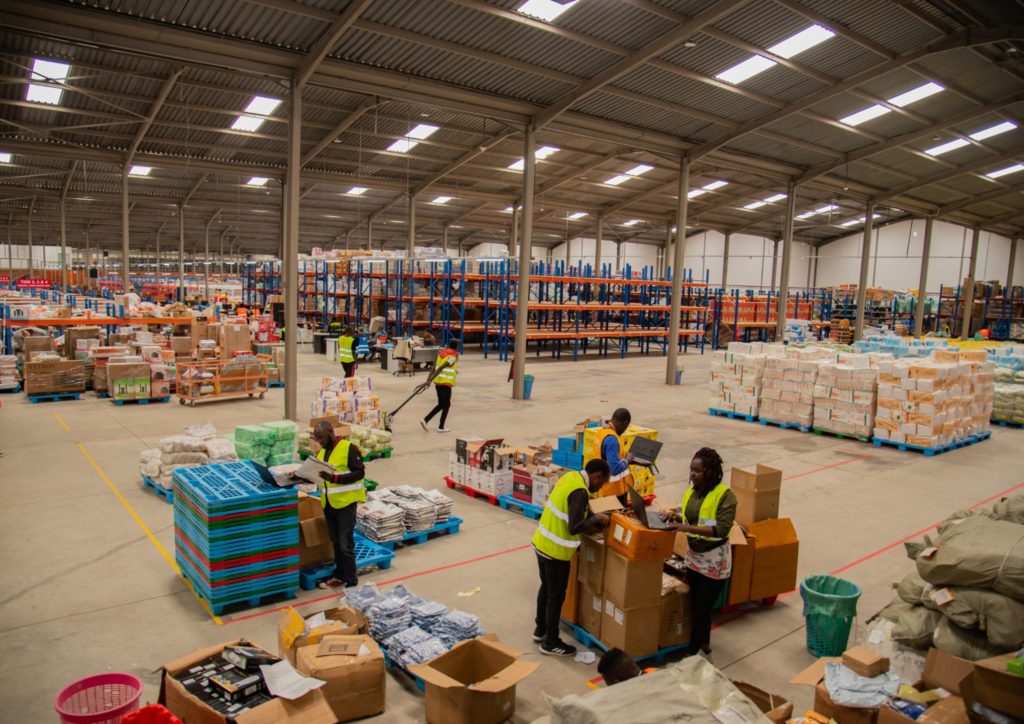Connecting networks, connecting business
By Israel Ogboi, Pre Sales Engineer at TelCables West Africa
Network peering is a critical, if not essential, tool in today’s global digital business environment.
Peering through public or private agreements has become a pivotal and rapidly advancing process that allows commerce and enterprises worldwide to reduce latency, improve network performance, and help businesses expand or scale according to their needs. Vitally, remote peering reduces IP transit costs by directly exchanging traffic with peers, bypassing the need to route through distant networks and other highly congested pathways. By accessing larger portions of international routing tables, businesses can also reduce the complexity of their connections without compromising network performance or reliability.
According to sources, NAP Africa, one of the largest IXPs in Africa, has significantly improved latency, reducing it from over 180 milliseconds (via traditional transit routes) to under 10 milliseconds for local traffic. As of June 2024, the IXP reports handling over 3 Tbps of traffic, highlighting the increased capacity and efficiency of the peering network.
The bottom line is, effective IP-Transit or Peering Connections can deliver better network performance at improved levels of security – and this is better for your growing business.
Why Does Peering Matter?
- Faster, more improved performance: Peering arrangements shorten the distance that data has to travel, it reduces lag, and speeds up data delivery. These factors have obvious benefits in today’s Teams’ driven workplace and is the real game-changer when it comes to online gaming and time sensitive data transmission.
- Cost Savings: By avoiding third-party middlemen, networks can cut costs for data exchange and local and international IP-Transit.
- Reliability: Network congestion is often the cause of slow network traffic and this could cause delays in the transmission of critical data from one business to another. Peering can easily reoroute network traffic, ensuring uninterrupted service – and business continuity. This has become increasingly important in the areas of geopolitical conflict where cable breaks and network disruptions have become more frequent.
- Smart Data Routing: Peering helps networks choose the best routes for data based on performance and cost, making more efficient use of resources.
- Direct Content Access: Content providers can send their data straight to users through peering with ISPs. This boosts user experience and lessens reliance on CDNs.
- Reduced Internet Congestion: Peering eases traffic on larger networks, keeping the internet healthier and more efficient.
- Business looking to maximise their network efficiencies need to evaluate their current network and assess where most of there data traffic is being sent or received. Would it make sense to have a direct connection with key business partners? This would not only make better use of resources at hand but lower latency connections could have a more compelling impact on your network, freeing up bandwidth and reducing costs.
Peering – also opening the world to new horizons
Besides creating a variety of opportunities for the development of new applications, services and content, peering offers a much broader range of benefits in our now, digitally saturated world. This is especially so for developing businesses and enterprises looking to expand their business and network operations beyond their local markets.
Peering has become an increasingly trusted tool, and the demand for peering points is increasing exponentially. Today, more businesses are connected, and this has led to the spread of interconnection services, the growth in regional traffic exchange points, and the adoption of regional peering policies. With a growing focus on the deployment of cloud-based services that are as well secure, reliable, and scalable. Well-constructed or well-defined peering agreements give businesses this flexibility and choice. It is possible to engage in an open, selective or restricted peering agreement depending on the purpose and nature of agreement that the parties may wish to enter into.
The unstoppable demand for data
Every day, the world is consuming more and more data than ever.
Out of the more than 8 billion people living on our planet today, 5.35 billion use the Internet. By 2029 (just five years away) it is estimated that the number of people with internet access will rise to 7.9 billion – an increase of 47%. As a result, the demand for data is virtually doubling every two years!
Add to this, the introduction and advancement of new applications from expanded Cloud services to the skyrocketing use of AI applications (and that is not just ChatGpt) but a range of new solutions and services to assist businesses navigate the digital landscape.
Companies seeking better performance may peer with cloud service providers (CSPs), either through their network service provider or directly with the CSP if the company has an autonomous system number (ASN) and meets the CSP’s peering requirements. The same applies to connections to Content Service Providers, data centers and international IXPs.
As an example, In South America, the growing number of ISPs are the biggest users of bandwidth in Latin America, with content providers showing a marked upward trend that is set to continue in the coming years.
Source: Telegeograph report
Currently, bandwidth usage is around data traffic volumes in Latin America is around 380Tbps. This is anticipated to grow to around 580Tbps by 2026.
Source: Telegeograph report
Direct peering agreements with IXPs, ISPs, CDNs, OTTs and others can provide better routing options at lower latencies and eliminate the need to risk time sensitive data being delayed due to congested bandwidth routes.
From a security perspective too, popular international routes and heavy volume bandwidth channels are increasingly becoming the target of DDoS attacks and data breaches. Comprehensive remote peering agreements can provide businesses with increased scrutiny and higher layers of security on dedicated routings and across their networks.
Businesses will need to evaluate and optimise their business and network connectivity options in the future – peering provides this solution
To remain competitive, efficient and effective in the modern digital economy, companies and businesses map their future network and data processing needs – whether this is for expansion of their digital offering or services, data storage or to maintain the highest levels of network security and performance.
Although peering agreements require an initial outlay and investment, it provides long-term value to your company or enterprise. To determine whether the costs outweigh the benefits you will need to determine the following?
• How much will your port costs be, including optics and equipment support costs.
• What are you currently paying to connect to a peering exchange, (this includes the cross- connect costs at the data center or exchange where your business is currently hosted) or the costs that you are paying to a 3rd party provider to reach you existing Internet Exchange Point.
Then there are the setup fees…
Source: Peering Econimics, Suzan Forney
The first portion is once-time costs, and the second portion is recurring costs.
Once your existing and future investment or overhead costs have been calculated, it is time to assess how much data traffic can be moved to your new port and what are the overall benefits that this will bring:
To make the best investment, it is important should consider and access who your potential peering partners will be on the exchange:
• Look at the exchanges where you can reach content networks or cloud providers – this can be very advantageous.
• Don’t forget to peer with the caching networks like Akamai, Fastly, Limelight, etc. Caching locally reduces costs. A benefit to you and your customer.
Make the more informed and smarter choice:
• Peering can provide real tangible benefits in terms of reduced latency and improved throughput. This is especially true when a lot of your ISPs are out of country.
• You will gain more diversity at your edge. This will improve traffic flow, decrease latency and can help your routers rebuild their tables more quickly when a link goes down.
• Your internal and external customers will notice the network improvements.
- Better quality of service at a cheaper price point.
The future of peering
Peering remains an essential part in enabling data-intensive applications, such as streaming media and video, and providing faster, more reliable connections for the growing demand for AI-generated and cloud-based services. Whilst remote peering is not a new technology, its vital contribution to giving businesses across the world and across Latin America Africa the opportunity to access and exchange content and data, securely and efficiently and will continue to promote collaborative opportunities between countries, businesses and communities in a rapidly evolving digital economy.
ENDS
About TelCables West Africa
TelCables West Africa is a Nigerian provider of network services and digital solutions and is the local operation for Nigeria and West Africa countries of Angola Cables, an internationally established ICT multinational ranked* as the number 24 operator in the world.
The company also provides a wide range offer of Cloud and integration services, IP networks and integrated access to worldwide to data centres, which provide direct, comprehensive, and low-latency access connectivity to the largest IXPs, Tier 1 operators and global content providers.
The company specializes in connectivity and IT solutions and services as well as the commercialisation of international data circuit capacity and IP Transit via submarine cables.
Our shared values and mission are to provide secure and low-latency connectivity to companies from West Africa to worldwide users. Our proven track record and dedicated team of IT and network professionals are here to partner you in expanding and advancing the capabilities of your network and business.
As the most connected network operator in Africa, we provide direct routings from West Africa to the USA and South America and from West Africa to London at the lowest latency. With our presence across several Nigerian IP hubs from Lekki, WACS CLS, Medallion DC, Rack Centre and others, and connections across Africa via the Djoliba network, we can connect your business to the world.


















